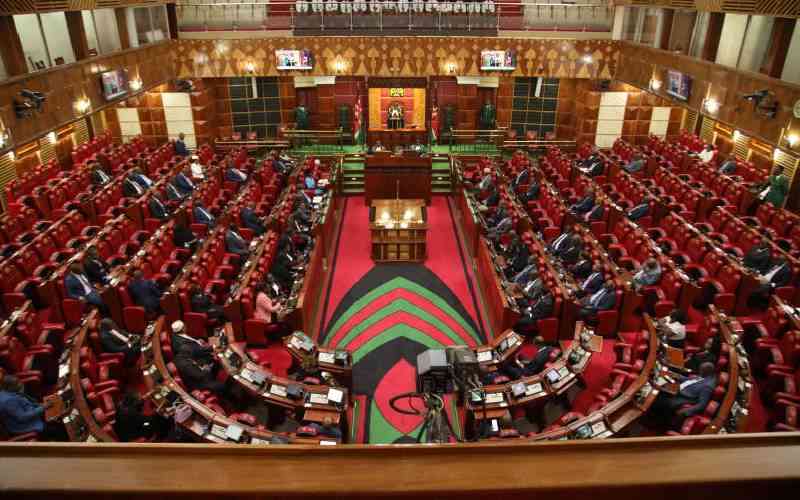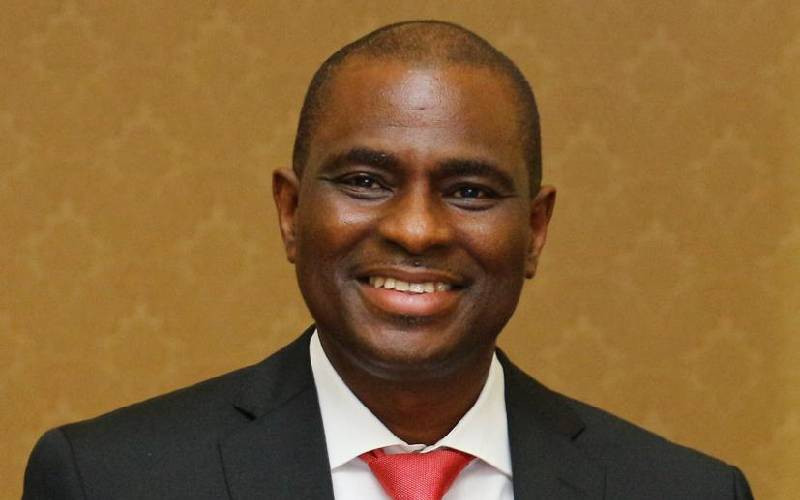
The government appears to be ceding ground in the privatisation of state-owned entities and will now seek MPs’ approval in the process.
A new Bill, aimed at easing the process of selling part of the government's shareholding in state corporations, has proposed giving Parliament powers to oversee the process.
The Privatisation Act 2023, which was nullified by the High Court last year, had taken away the National Assembly’s powers to scrutinise the privatisation process.
Instead, the Act relegated the National Assembly to ratifying the sale of public assets following proposals by the National Treasury and approval by the Cabinet.
While this would have avoided a lengthy approval process and sped execution of privatisation programmes, it was feared that Kenyans' say in the sale of public entities would be excluded.
The Privatisation Act of 2023 was nullified by the High Court, which also found its formulation failed to meet constitutional provisions on public participation.
The Privatisation Bill 2025, which is sponsored by Leader of the Majority Party Kimani Ichung’wah, was published on July 16 and read in Parliament on August 5, is expected to steer government’s renewed bid to sell public entities as it seeks to raise money for budgetary support but also reduce its spending on some of the entities that are in constant need of bailouts.
Treasury is kick-starting the bid to sell government stake in parastatals with an initial public offering (IPO) of the Kenya Pipeline Company (KPC) at the Nairobi Securities Exchange, which is expected to take place by the end of next month.
The sale of KPC received Cabinet approval in July and is now set to be debated by Parliament.
“After formulation of the privatisation programme and approval by the Cabinet, the bill proposes that the programme be submitted to the National Assembly for approval,” said the National Assembly in a call to Kenyans to give their views on the Bill as it kickstarts the public participation process.
“The bill provides clarity on the oversight role of the National Assembly by requiring its consideration of a privatisation programme within 60 days of receipt.”
In addition to KPC, other entities up for sale include the Kenya International Convention Centre (KICC), New Kenya Cooperative Creameries (New KCC), Kenya Seed Company, Kenya Literature Bureau, and the National Oil Corporation of Kenya.
The 2023 Act had assigned the responsibility of formulating the privatisation programme to the Treasury Cabinet Secretary. Thereafter, the privatisation programme would be submitted to and approved by the Cabinet.
The role of the National Assembly had been reduced to simply ratifying the programme.
Stay informed. Subscribe to our newsletter
The Kenya Kwanza administration had been banking on the Privatisation Act 2023, which President William Ruto assented to in October 2023, to ease the privatisation process.
The 2005 Act, which is currently in effect following the nullification of the 2023 Act, is said to have numerous requirements that stifled the state’s plan to privatise some entities.
It is due to these hurdles that the Privatisation Commission, which the new Bill proposes to replace with the Privatisation Authority, had limited success in concluding any deal despite having set out to privatise 26 parastatals at its formation in 2008.
The entities are still listed as among those that the government plans to privatise, a process that is now expected to be undertaken with the guidance of the proposed law.
“Upon enactment of the Bill and its commencement, the privatisation of the entities public under the Gazette Notice no 8739 of August 14, 2009 shall be finalised in accordance with the new Act. This clarifies the treatment of any ongoing privatisation and that will apply in its subsequent stages,” said the National Assembly.
The High Court in September last year rejected the 2023 Act, noting that the process of coming up with the Act did not meet the threshold provided by the Constitution on public participation. Parliament is in an attempt to cure this with the public participation process it has just started.
In his ruling, Justice Chacha Mwita noted that the Constitution is the supreme law and that the public must be involved in public participation.
“The National Assembly does not do the public a favour by inviting them to participate… the country is founded on principles of national governance, and the National Assembly must conduct its business in an open manner,” he said.
There are also doubts as to whether the government will proceed with the sale of KICC after the court said it is a national monument, which the Constitution requires to be preserved.
The push to offload shareholding in some of the state-owned entities has been supported by the International Monetary Fund (IMF). The Bretton Woods institution has in the past tied reforms of state-owned entities, including the privatisation of some, as among the conditions Kenya has to fulfil to access lending.
President Ruto had in October 2022 said he expected to sell government shareholding in 10 parastatals within a year through listing at NSE. In July this year, he repeated this promise and specifically said that the government would sell part of its stake in KPC through an IPO at NSE by September this year.
In the past, privatisation of government entities has drawn a huge number of Kenyans to invest in the NSE. These include the Safaricom initial public offering (IPO) in 2008 that was oversubscribed by 532 per cent and attracted over 700,000 new investors to the Nairobi bourse. Others were KenGen, oversubscribed by 333 per cent, and Kenya Re (334 per cent), which also brought in hundreds of thousands of new investors to the bourse.
